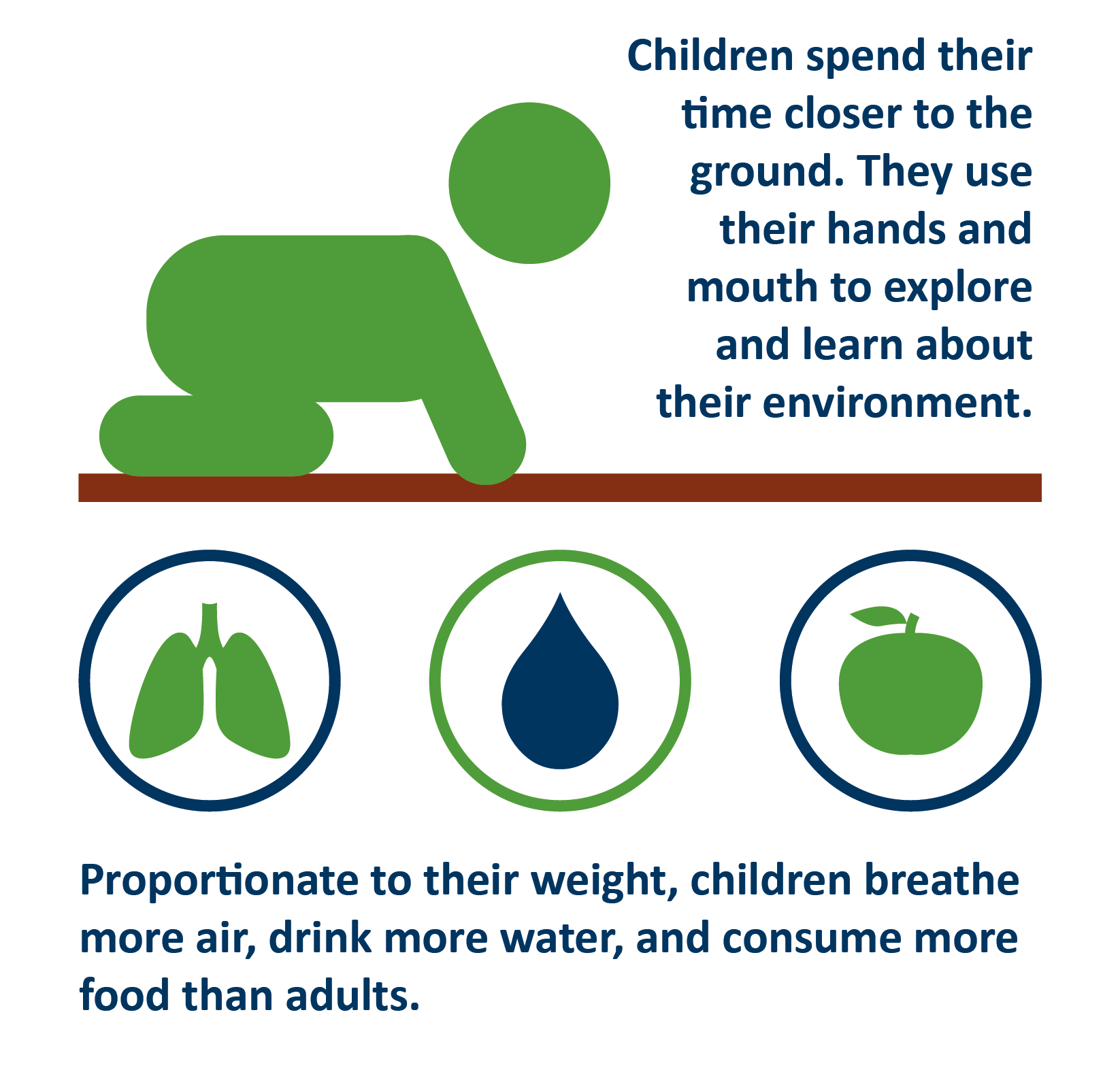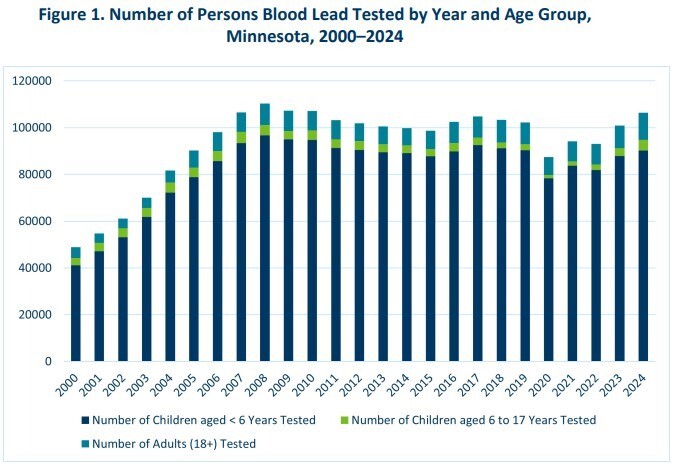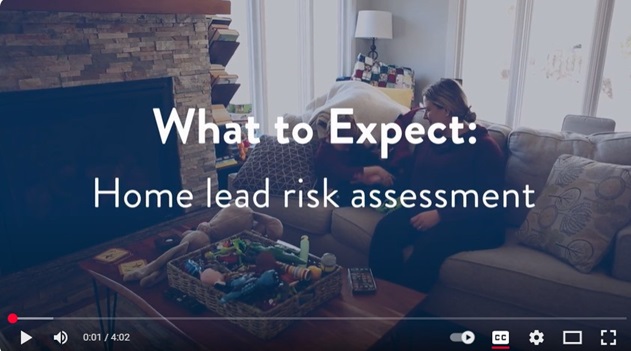Environmental Health Division
Highlights
Environmental Health Division
This information is currently newsworthy, seasonally pertinent, or is showcased to promote awareness..
Get email updates when information is added or updated to this website by signing up below.
Working Carbon Monoxide Alarms

MDH reminds people to make sure you have working CO alarms within 10 feet of every room used for sleeping. According to the Consumer Product Safety Commission’s Report (February 2024) (PDF), non-fire CO deaths are most associated with furnaces, portable heaters, and portable generators. So, we recommend that you get your furnace inspected annually. Also, having a CO alarm with a digital read out is a good idea. If the reading is anything but 0 ppm, then it is a good idea to find out the cause of the CO problem. More information can be found on Carbon Monoxide (CO) Poisoning in Your Home.
Children's Environmental Health Resource Webpage

Children's environmental health is an important concern to the Minnesota Department of Health (MDH). The Resources for Children's Environmental Health webpage brings together practical information to help parents, caregivers, and communities keep kids healthy.
Well Tested? Well Done SE Minnesota

Thousands of residents in Southeast Minnesota rely on private well for their drinking water. Private well users are responsible for maintaining their well water system, testing, and if necessary treating their water. The Minnesota Department of Health (MDH) recommends that private well users in any part of the state test their drinking water annually for coliform bacteria and nitrate and at least once for arsenic, lead, and manganese. With support from the Clean Water Land and Legacy Amendment, MDH and the Tap-In Collaborative are offering free water test kits to private well users in eight southeast Minnesota counties in response to requests from the U.S. Environmental Protection Agency. Currently over 3,700 test kits have been requested and over 1,700 kits have been returned and analyzed. To learn more about work being done in southeast Minnesota related to nitrate visit Well Tested? Well Done SE Minnesota.
MDH Licensing System launches online system for Well and Boring Contractors
Beginning December 4, 2025, well and boring contractors will have the option to renew their licenses and register their equipment through a new online system, the Minnesota Department of Health (MDH) Licensing System. Starting in early 2026, you will be able to use the Licensing System to submit notifications, permit applications, water quality results, and records. MDH will provide training and support for users of the new system.
Read the 2024 Blood Lead Surveillance Report today

The 2024 Blood Lead Surveillance Report (PDF) is published annually and is an overview of blood lead testing data reported to the Minnesota Department of Health (MDH). MDH maintains a blood lead surveillance system to monitor trends in blood lead levels in adults and children in Minnesota. The data are used to help identify populations at risk for elevated blood lead levels, ensure screening services are provided to groups with a high risk of lead poisoning, and ensure environmental and medical follow up are provided to children with elevated blood lead levels.
PFAS Biomonitoring Best Practices for Minnesota Firefighters
The Minnesota Department of Health (MDH) has released a new expert report on best practices for PFAS biomonitoring for Minnesota firefighters, developed under legislative direction and in partnership with Eastern Research Group and Minnesota firefighter associations. The report outlines evidence-based, practical recommendations for conducting firefighter biomonitoring in ways that are scientifically sound, equitable, and informed by real-world conditions in fire service. MDH is now applying these recommendations to a three-year, statewide biomonitoring project that will help characterize PFAS exposure among firefighters across Minnesota. The report can be found at PFAS Biomonitoring for Minnesota Firefighters.
What to Expect: Home Lead Risk Assessment

The Minnesota Department of Health's Lead Program has a new video called What to Expect: Home Lead Risk Assessment (YouTube). This video can help families understand and see the process of a typical home lead risk assessment if their home is ever checked for sources of lead. Additional Lead resources can be found at Lead Fact Sheets, Videos and Brochures.
Licensing System
Minnesota Department of Health Licensing System is available for Certified Food Protection Manager (CFPM), Registered Environmental Health Specialists/Registered Sanitarians (REHS/RS), Lead, Asbestos and Wells and Boring.
EH topics

The Environmental Health Division (EH) works on multiple topics to support the health of all Minnesotans. You can search these topics on the Topic Index webpage.
Minnesota Office of Accessibility
State of Minnesota’s free e-Learning program on how to create accessible documents.
